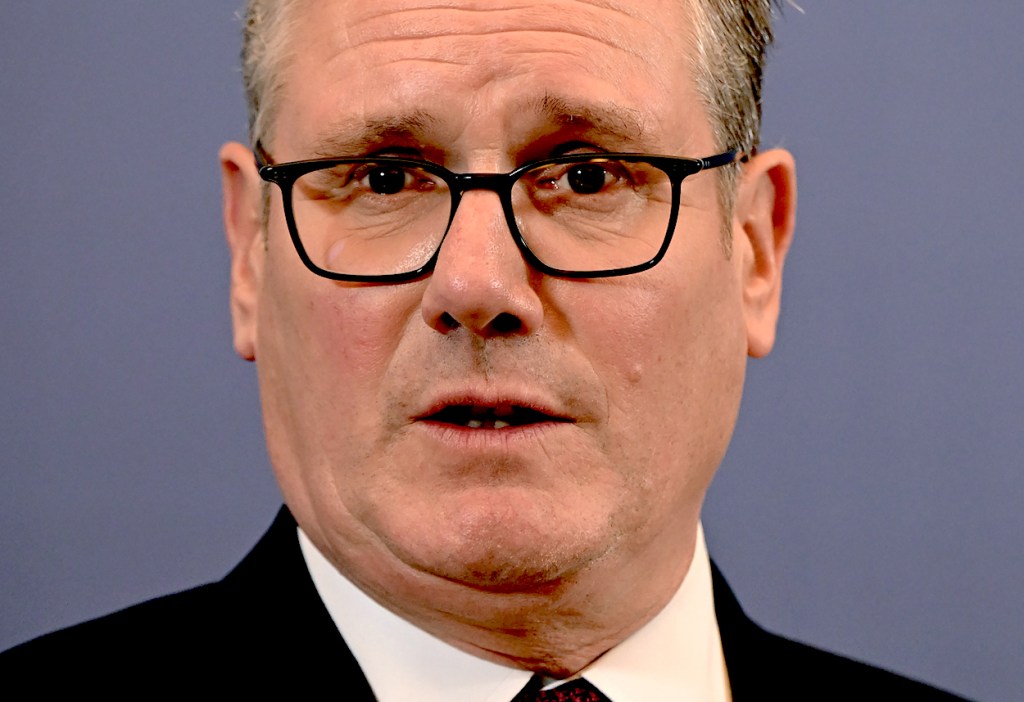Scheduling the Budget almost four months after their election victory would have counted as a monumental misjudgment for the Labour government were it not for all the other cock-ups that turned their first 100 days into a sitcom. Still, the extended period of speculation about which taxes Rachel Reeves is really planning to raise has done no good at all to her carefully groomed reputation as a ‘serious economist’ (to quote Mark Carney) who is somehow uniquely pro-business and pro-worker. On the contrary, there have even been suggestions that she could be about to unleash chaos on the financial markets akin to the Truss-Kwarteng fiasco of two years ago.
But in essence it’s pretty obvious. Having sworn not to raise taxes on the earned incomes of ‘working people’, she must raise them on capital and unearned income, and from business. Pensions, savings, dividends, capital gains – everything the middle classes have always been encouraged to accumulate to secure their old age and help their offspring – are in her sights. Increased employers’ national insurance contributions, on top of extra costs attached to enhanced workplace rights, represent one form of collateral damage from Reeves’s desperation to make her numbers add up despite a flood of public-sector pay rises. An exodus of the wealthy, including many professional investors, is another.
So we know what’s about to hit us and we might as well stop chuntering about it. What remains to be challenged is the blatant, black-is-white sophistry of the Chancellor’s claim that this – let’s face it, only to be expected – socialist redistribution will also promote the economic growth the government proclaims as its top priority. It can’t and it won’t, but we’re stuck with it.
The great investor
I never met Ratan Tata but I did once speak to him on the phone. The patriarch of India’s mighty Tata industrial group, who has died aged 86, deserves a special salute as the UK’s greatest inward investor of the century so far, having poured billions into the blast furnaces of Port Talbot in an attempt to keep full-scale steelmaking alive in this country, and having revived Jaguar Land Rover as a world-class automotive manufacturer.
Never mind the sheikhs of DP World, whose £1 billion injection into the London Gateway container port will facilitate far more manufactured imports than exports. Tata was a much more admirable contributor to the UK’s diminishing industrial economy. There should have been a minute’s silence for him (and perhaps a minute less of the Prime Minister’s solemn sermonising on growth) at Monday’s overhyped International Investment jamboree.
Apart from his titanic business record, I admired Tata for his modest lifestyle, his love of dogs, and his asperity towards other Indian tycoons who flaunted their wealth amid India’s teeming poor. In our phone call, long ago, we spoke about the billionaire Hinduja brothers – but I’ll respect his confidence and let his robust opinion go to the grave.
Upside potential
As an authentic tech entrepreneur and protégée of the late Mike Lynch of Autonomy, Poppy Gustafsson is well qualified to become minister for investment in the House of Lords; more so than the previous candidate, who was Benjamin Wegg-Prosser, an associate of Peter Mandelson and former Downing Street spin doctor. The Prince of Darkness himself would have made a persuasive investment minister, but we might guess that when asked, he replied airily: ‘Benjy’s your man.’
That idea didn’t land, so the job went to 42-year-old Gustafsson, who in 2013 – with a team from Autonomy, the software business that had by then been bought by Hewlett Packard of the US – she co-founded the Cambridge-based dotcom Darktrace. A pioneer in the use of machine learning to detect abnormal network activity and avert cyberattacks, Darktrace listed in London in 2021 with a value of £2.5 billion. After seeing off allegations of accounting irregularities, it was acquired last year by Thoma Bravo, a Chicago private equity outfit, for £4 billion.
Is Darktrace a shining example of value creation by UK tech talent? Or a parable of London’s inability to attract public investors into the science-led high-growth ventures that so often fall to private foreign buyers who spot the upside profit potential? It’s certainly in sharp contrast to the Tata mode of committed inward investment, which is what our economy really needs. But I’m sure Gustafsson understands the difference.
Eat out to help out, again
This week’s most shocking business headline was not ‘Firms “pausing” hiring and investing ahead of Budget’ (BBC) – we’ve known that since July – but ‘Supermarkets hasten the demise of restaurants’ (Daily Telegraph). The story was that Waitrose, Marks & Spencer and Tesco are promoting upmarket ready meals as a cheap alternative to eating out, taking advantage of the travails of the restaurant trade and ‘trying to convince the public that they can have just as good a time at home’.
No they can’t, I say, and the campaign to stop this new manifestation of the miserabilist fashion starts here. Not that I haven’t noticed new levels of sophistication in friends’ kitchen suppers (‘Ottolenghi, darling?’ ‘Totally!’). But would I pop into Tesco Express for its ‘Finest’ risotto when I can enjoy sardines on toast and rabbit rillettes at the counter of The 10 Cases in Endell Street? Or plump Shetland mussels at Boisdale, seated (so they told me) at Nigel Farage’s favourite table?
Of course I wouldn’t. Restaurants are theatre and convivium as well as food and drink: use them or lose them. Unless you’re a Labour minister, that is, in which case you’re wise to order meal deals in – because if you’re spotted out, no one will believe you’re paying your own bill.








Comments